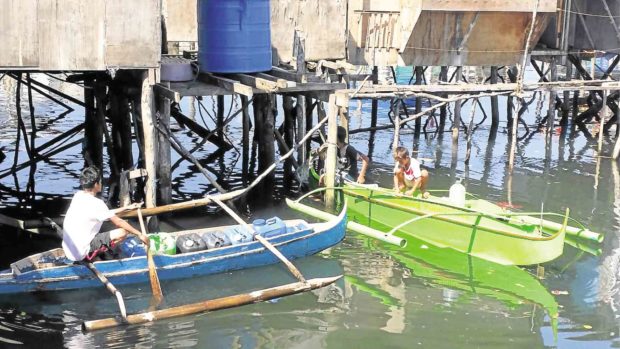MANILA, Philippines — Close to 300 Badjao (also known as Bajao or Bajau) indigenous people (IP) who were rescued in Manila after they allegedly fell victims to human trafficking will be brought back home to Zamboanga.
According to the Inter-Agency Council Against Trafficking (Iacat), 282 of the 303 IP members who arrived at Manila North Harbour Seaport on Friday were to be sent home on Sunday.
The 21 others will have to stay in Manila “due to health reasons,” Iacat said in a statement.
The IP members were rescued by members of the Philippine National Police, Department of Social Welfare and Development and the National Commission on Indigenous People.
The Iacat said the IP members were alleged victims of violations of Republic Act No. 9208, or the Anti-Trafficking in Persons Act of 2003, as amended by RA 10364, and RA 7610, or the Special Protection of Children Against Abuse, Exploitation and Discrimination Act.
Upon their arrival in Manila, the IPs underwent antigen swab test for COVID-19 and were interviewed by social workers and police investigators.
They were turned over to a temporary shelter in Quezon City under the Balik Probinsya, Bagong Pag-Asa program as they await their departure for Zamboanga.
More than a hundred of those who were rescued were minors.
The Iacat said based on interviews conducted on the IPs, many of them claimed going to Manila to visit relatives.
Prior to the rescue, Mindanao Field Unit of the PNP’s Women Children Protection Center received information from Zamboanga Sea-Based Anti-Trafficking Task Force and Philippine Coast Guard that around 340 Badjao IP passengers were scheduled to depart Zamboanga for Manila by ship.
“The information further disclosed that their travel was facilitated/sponsored by an undisclosed individual,” the task force said.
It added that last month, several IPs, mostly minors, were rescued by authorities at Ninoy Aquino International Airport and Mactan International Airport.
Jinky Dedumo, executive director of Iacat, said that they had coordinated with the concerned agencies and immediately held an emergency meeting to address the situation.
